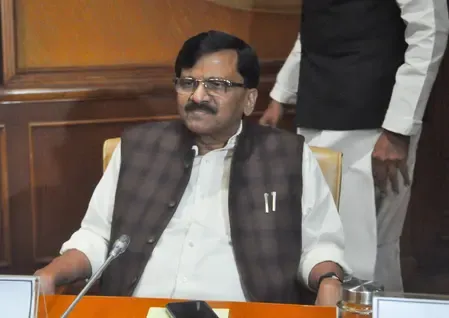Is Kerala Reviewing Central Labour Codes to Enhance Worker Protection?

Synopsis
Key Takeaways
- Kerala's commitment to worker protection is unwavering.
- The state will not adopt anti-worker measures.
- Extensive consultations will guide new regulations.
- Focus on fair wages and decent working conditions is paramount.
- Development must align with social justice.
Thiruvananthapuram, Nov 22 (NationPress) Kerala's Labour Minister V. Sivankutty emphasized on Saturday the state's commitment to worker protection while reviewing the implementation of the Central Government's new labour codes. He assured that Kerala will not embrace any measures detrimental to workers’ rights.
Sivankutty stated that the state government is meticulously assessing the proposed changes to ensure that Kerala's rich history of labour protection, trade union rights, and social security remains intact.
"We are resolute that Kerala will not endorse any initiative that undermines the rights of workers or diminishes the role of trade unions, which are essential for maintaining industrial harmony and ensuring employee welfare," the Minister declared.
While acknowledging that simplifying labour laws aims to foster an industry-friendly atmosphere, Sivankutty insisted that this objective should not compromise worker dignity.
"Any labour reform must ultimately elevate the living standards of workers," he asserted.
"Kerala will focus on ensuring fair wages, comprehensive health and safety protocols, enhanced social security, and improved working conditions," Sivankutty added.
He further stressed that reforms should be crafted to safeguard—not jeopardize—the fundamental rights and livelihoods of workers who are the core of the state’s economy.
The minister indicated that state-specific regulations aligning with the Central labour codes will only be developed after extensive consultations with major trade unions, employer organizations, and industrial sector representatives.
"The government aims to achieve consensus on critical provisions before finalizing any regulatory framework," noted Sivankutty.
He confirmed that necessary protections will be incorporated into the regulations to ensure that no existing or new provisions adversely affect Kerala's workforce.
"The government is dedicated to ensuring that every worker in the state receives adequate protection, both legally and practically," he emphasized.
Kerala, recognized for its strong labour traditions, has consistently highlighted that policy shifts must align industrial progress with worker welfare.
The minister's remarks reinforce the state's stance that development cannot proceed at the expense of social justice and labour rights.









